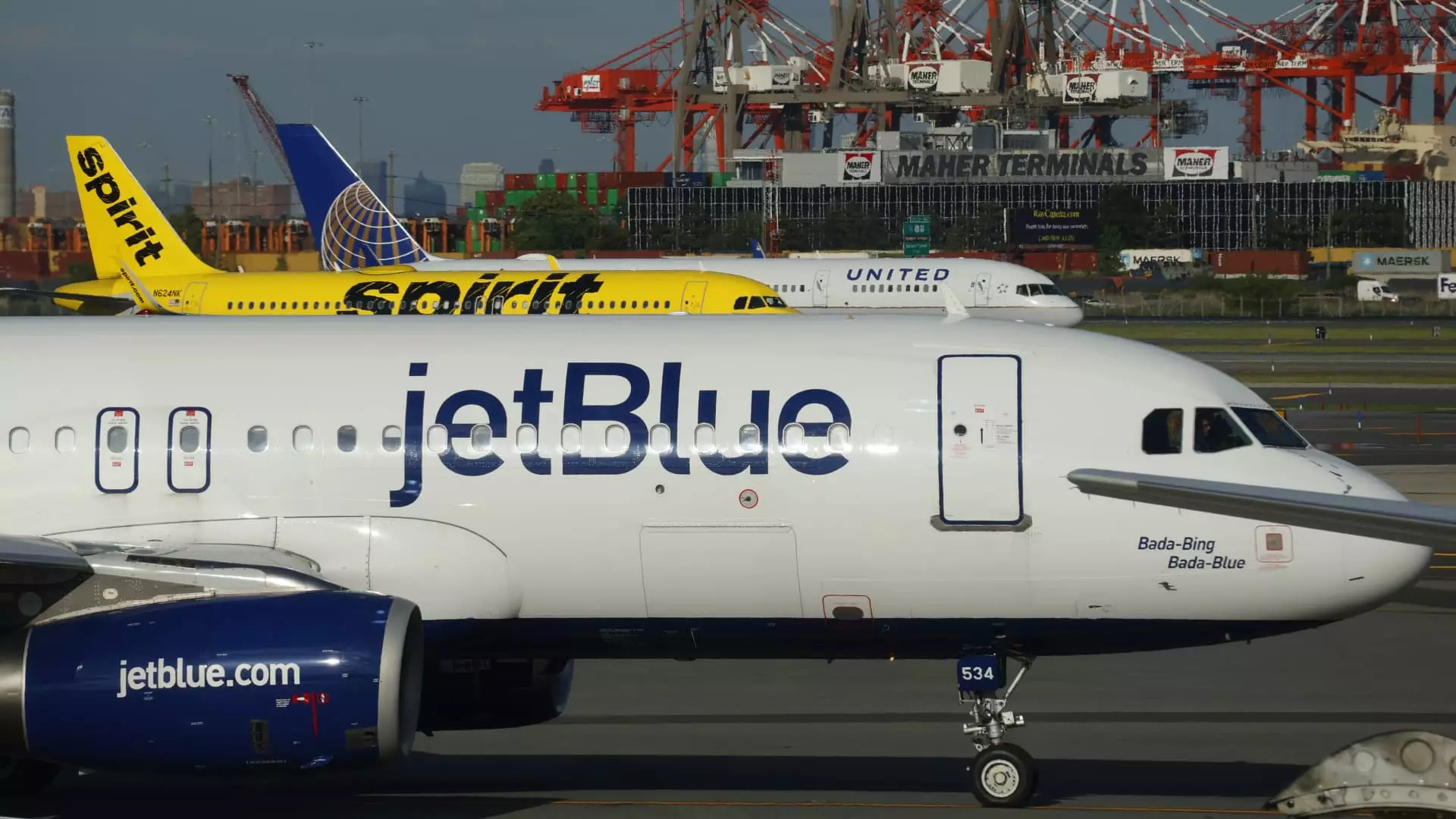As airlines around the world navigate their way through the challenges brought on by the COVID-19 pandemic, low-cost carriers are finding themselves in a particularly tough spot. Cash-strapped and struggling to return to profitability, airlines like Spirit Airlines, JetBlue Airways, and Frontier Airlines are deferring billions of dollars worth of new aircraft orders in an effort to save money. The impact of engine repairs and a saturated market have further added to the financial strain faced by these carriers.
Despite years of clamoring for new jets, many airlines are now opting to postpone the delivery of new aircraft as they grapple with the harsh economic realities of the industry. This shift in approach comes as carriers face the dual challenge of declining revenues and increasing costs. For example, Frontier Airlines recently announced the deferral of 54 Airbus aircraft deliveries until at least 2029, citing an oversupply of planes in the market. This decision reflects a broader trend among airlines to slow down their growth plans in response to market conditions.
The decision to defer aircraft orders is not only a strategic move but also a financial necessity for many airlines. JetBlue Airways estimates that it will save approximately $3 billion by delaying the delivery of 44 Airbus A321 airplanes through 2029. This cost-saving measure is part of a broader effort by the carrier to mitigate the impact of reduced revenues and rising expenses. Additionally, the grounding of jets due to a Pratt & Whitney engine recall has further strained the financial resources of airlines like JetBlue, prompting them to expedite cost-cutting initiatives.
While deferring aircraft orders may provide short-term financial relief, it comes with its own set of challenges. JetBlue CEO Joanna Geraghty highlighted the dilemma faced by airlines, noting that the need for new planes is crucial for growth but taking delivery of aircraft that remain grounded is counterproductive. This dilemma is further exacerbated by mounting debt levels, making it increasingly difficult for airlines to justify new aircraft purchases amid ongoing financial uncertainties.
The ripple effects of airlines deferring aircraft orders are not limited to individual carriers but extend to the broader airline industry. Lease rates for popular aircraft models like the Airbus A320 and Boeing 737 Max are hitting record highs, reflecting the scarcity of fuel-efficient planes in the market. This scarcity is compounded by production constraints faced by aircraft manufacturers like Boeing and Airbus, further exacerbating the challenges faced by airlines seeking to expand their fleets.
As airlines grapple with the financial fallout of the pandemic and the ongoing challenges of the industry, the decision to defer aircraft orders represents a pragmatic response to a complex set of circumstances. While the short-term impacts may be challenging, the long-term implications of these cost-saving measures remain to be seen. As the industry continues to evolve, airlines will need to balance the need for growth with financial prudence to navigate a path towards sustained profitability in a highly competitive market.

